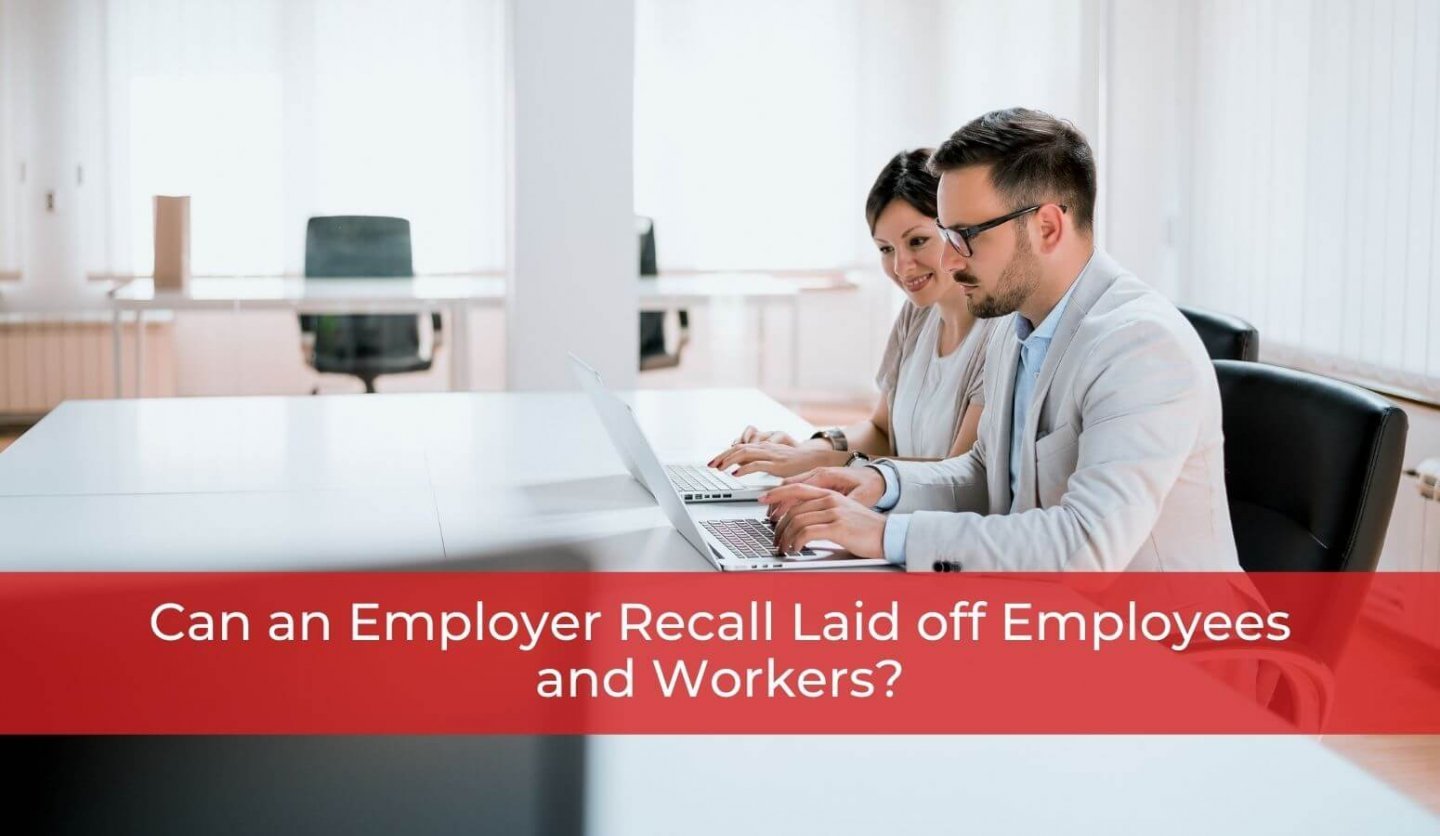
Can an Employer Recall Laid off Employees and Workers?
As COVID-19 restrictions loosen, many employers are in the process of recalling employees that were laid off over the pandemic. Generally speaking, an employer is entitled to recall laid off employees. However, there are many considerations that need to be made when deciding how to recall laid off employees, and whether the employees have options.
Given the significant lapse of time since the onset of the pandemic, it is likely that many of these laid off employees have moved onto new jobs or started earning their own income via self-employment. Many others may have decided to stay home to take care of children or other family members.
Therefore, the first step for employers will be to send out a notice informing their workers that it intends to recall them. The notice should include the date of recall and relevant details like whether the employee will be working from home or on-site. Employers should seek actual confirmation that the employee intends to return to work. There is no particular order that employees must be recalled in, so long as the order is not dictated by discriminatory motives.
Employees should be given sufficient notice of this recall. The length of notice required will depend on the situation. Employers who are looking to recall laid off employees should look to the employment standards legislation, the employee’s contract, and speak with an employment lawyer to canvas any requirements. Generally, employers in Ontario will be required to provide “reasonable notice” of the recall to work. Reasonable notice will be circumstance dependent, and ultimately, the more notice the better. Most employees will need to make lifestyle adjustments after a long layoff to prepare for the return to work.
Recalled employees should be reinstated to the same position that they held prior to the layoff. If for some legitimate business purpose that position no longer exists, they should be reinstated to a comparable position.
Employees are expected to return to work unless they have a legitimate ground to refuse. For example, if they have an illness or childcare responsibilities, an employer may be obligated to accommodate their needs. Failing a legitimate reason, a refusal, or ignoring a notice to return to work may be construed as a resignation or job abandonment with sufficient notice. Employers that have laid off employees may also face risks of constructive dismissal claims. If an employee was laid off recently or has not yet been called to work, they may have a case of constructive dismissal.
Whitten & Lublin’s legal team can provide insight and advice into your specific circumstances. If you are looking for employment lawyers and would like more information about what Whitten & Lublin can do for you, please contact us online or by phone at (416) 640-2667 today.



